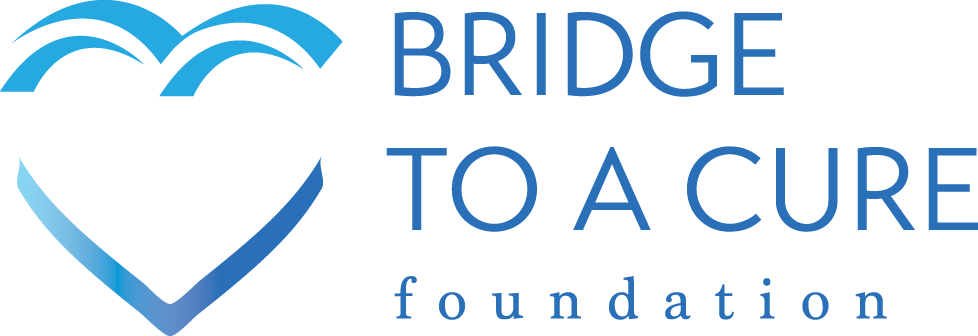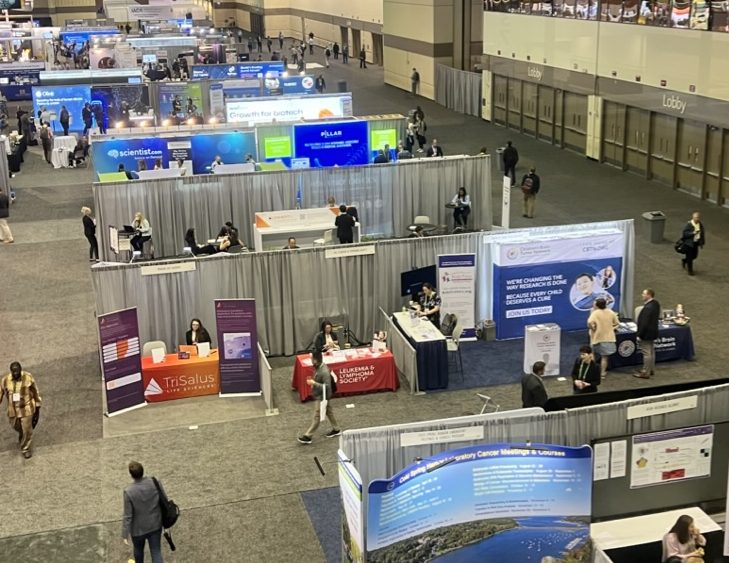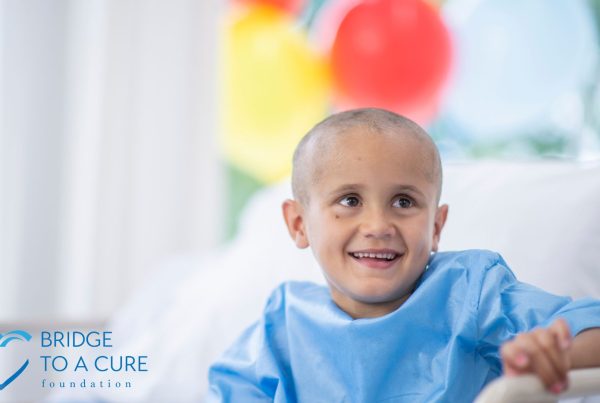How Scientists See the Field Moving Forward and Addressing the Underrepresentation of Childhood Cancer Research
The annual American Association for Cancer Research (AACR) member meeting welcomed more than 20,000 cancer experts April 14th-19th at the Orange County Convention Center in Orlando, Florida. The meeting provided ways to explore the latest breakthroughs and advancements in cancer treatment, including childhood cancer. With large-scale keynote sessions that involve dozens of brilliant minds from across the world to educational breakout sessions and poster presentations, attendees learned about the latest research findings, shared ideas, discussed cutting-edge advancements, and connected with others in the field. This meeting is crucial for moving the field of cancer research forward and paving the way for future treatments. And Bridge To A Cure Foundation was there.
Advancements in Cancer Research
One major area of focus at this year’s AACR meeting was precision medicine, which offers personalized cancer treatments that target the specific genetic mutations feeding an individual patient’s cancer. This approach has shown tremendous promise in treating certain types of cancer, giving hope to patients and families who previously had limited treatment options.
Another exciting area of research that was discussed entailed the use of artificial intelligence (AI) to analyze vast amounts of data and develop new cancer treatments. This innovative technology has the potential to revolutionize cancer research and improve patient outcomes by identifying new patterns and insights that would be difficult to detect using traditional research methods. — and would take exponentially longer to detect without the use of machine learning.
However, despite these promising developments, cancer research still faces numerous challenges. One of the most pressing is the need for increased funding to support research and development. Without adequate resources, progress in cancer research will continue to be slow and limited, and patients and families will continue to suffer. Additionally, collaboration between researchers, clinicians, and patient advocates is crucial to advancing cancer research and improving patient outcomes.
At the AACR meeting, researchers highlighted the importance of working together to share knowledge and resources and to ensure that patients remain at the center of research and treatment decisions.
It’s important to recognize that behind each research presentation and statistic at the prestigious AACR gathering are real people who have been affected by cancer. Patients and their families are living with the devastating impact of this disease every day, and they rely on the efforts of researchers and experts to find new and better treatments. The advances in precision medicine and AI are not just scientific breakthroughs, they offer hope and better outcomes for individuals and families affected by cancer.
Overall, the AACR meeting is a reminder that progress is happening in cancer research, but there is still much work to be done. By prioritizing funding and collaboration, and by keeping patients at the forefront of research and treatment decisions, we can continue to make significant strides in the fight against cancer.
The Underrepresentation of Childhood Cancer Research
The underrepresentation of childhood cancer research is a devastating reality made apparent at the AACR meeting. Just a small fraction ofthe hundreds of presentations, booths, white papers, and research discussions touched upon childhood forms of the disease.
Despite the tremendous progress that has been made in adult cancer research, childhood cancer remains an area that is significantly underrepresented. With such a small fraction of cancer research focusing on children with cancer, our youngest patients face more limited treatment options and a lower chance of survival than adults with some of the deadliest forms of cancer. It also means that families are left to navigate a complex and confusing healthcare system, often with limited resources and support.
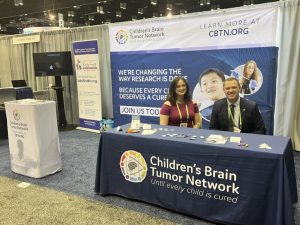 The underrepresentation of childhood cancer research is a human tragedy that affects real people and families every day. At the Children’s Brain Tumor Network booth, Bridge To A Cure leaders helped CBTN share the great news that researchers can freely access one of the largest data collections of its kind in the world.
The underrepresentation of childhood cancer research is a human tragedy that affects real people and families every day. At the Children’s Brain Tumor Network booth, Bridge To A Cure leaders helped CBTN share the great news that researchers can freely access one of the largest data collections of its kind in the world.
This call to action invited researchers, clinicians, and policymakers to access shared data and collaborate to prioritize the needs of children with cancer and to dedicate the necessary resources to finding better treatments and cures.
Childhood cancer is an area of research that has historically received less funding and attention than adult cancers, despite being the leading cause of death from disease in children. While it is important to recognize the progress that has been made in childhood cancer research, there is still much work to be done. We cannot let another day go by without taking action to end the suffering of children with cancer and their families.
Consider supporting our mission by learning more about our efforts to empower discovery through collaboration, and the unique need for personalized medicine for every child with cancer.
